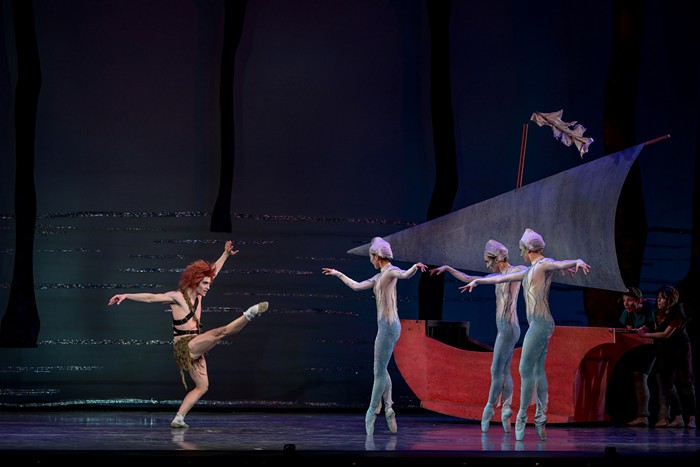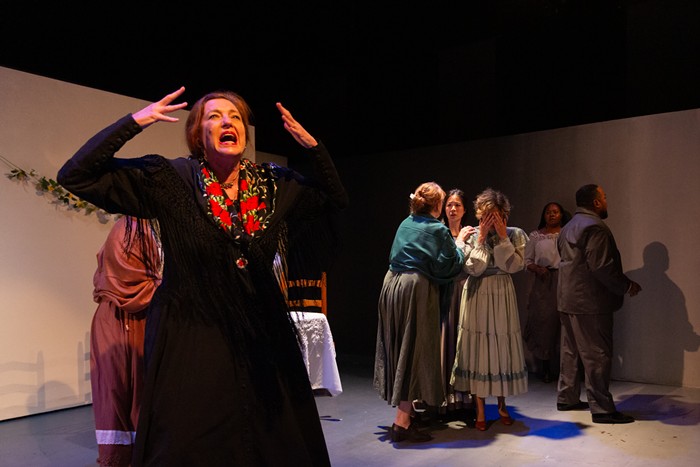Sowelu Theater
Through Dec 15
It is safe to say that Caryl Churchill's Fen is a play of epic proportions. It depicts the rise and fall, and rise, of a Northern English farming community, possessing both its plethora of interweaving characters and vast physical vision with exquisite detail. The fact that it does this in the span of one act is downright amazing. Fen is a miracle of efficient storytelling.
Sowelu's production of Fen maintains that spirit of efficiency with a set that squeezes the play's central image of rolling rows of onion plants into the tiny black box space at the Back Door Theater. Parallel lines of stuffed cloth spread from the back corner of the space, widening into a fan towards the audience, and giving the illusion of fields stretching off into the distance. Sean Skvarka's haunting sound design covers the magnificent set with a long, dark blanket of emptiness.
When actors finally appear, they almost feel like an intrusion on the ambience. Bahr has instructed them to use English accents, a choice that will put any American cast at the mercy of a slew of potential problems. Here, the problem that emerges lies in Bahr's choice to stretch the spirit of efficiency into her casting. With the exception of the stunning Jordy Oakland as the love-struck Val, each cast member plays between three and four different characters. It's hard enough to play multiple characters in one show, and make each one memorable and distinct; it's even harder to do it when one is trying to maintain a foreign accent in the process.
The only storyline that ends up standing out is Val's torpid relationship with her true love, Frank (Brian Russell). The other stories are a blur of actors jumping in and out of costumes, and running on and off stage as different characters. I found myself growing tired, and became more and more drawn to the beautiful technical aspects of the show. In addition to the set and sound, Bahr and choreographer, Heidi Carlson, have concocted some lucid movement sequences that imbue the production with a dreamlike quality. The lucidity really works in the show's favor, because it makes the confusion in trying to understand what is going on more acceptable. After all, dreams are never clear.
You might want to read Fen before seeing this production. Yes, you should see it. It's beautiful and often powerful. It's worth seeing. It's also worth understanding.


















